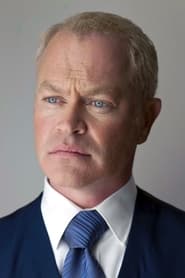
Ask Your Own Question
What is the plot?
The episode "Bastogne" begins with a cold, bleak winter landscape in December 1944, as Easy Company is entrenched in the Belgian town of Bastogne during the Battle of the Bulge. The men are suffering from extreme cold, lack of supplies, and the relentless pressure of the German offensive. The camera pans over the exhausted soldiers, showcasing their frostbitten faces and tattered uniforms, emphasizing the dire conditions they are enduring.
As the episode progresses, we see the company's struggle for warmth and sustenance. The men huddle together in makeshift shelters, sharing what little food they have. The atmosphere is tense, with the soldiers feeling the weight of their situation. They are aware that they are surrounded by German forces, and the uncertainty of their fate looms heavily over them. The internal conflict is palpable, as they grapple with fear and the desire to survive.
Lieutenant Dick Winters, now a battalion commander, is shown coordinating with his men and trying to maintain morale. He is depicted as a calm and collected leader, but the strain of command is evident on his face. He makes the difficult decision to send out patrols to gather intelligence on enemy movements, knowing that the risks are high. The men are hesitant but trust Winters, showcasing their loyalty to him.
The narrative shifts to a tense night patrol led by Sergeant Carwood Lipton and Corporal Donald Malarkey. They venture into the dark, snowy woods to scout for enemy positions. The atmosphere is thick with suspense as they navigate the treacherous terrain, their breath visible in the frigid air. Suddenly, they encounter a German patrol, leading to a tense standoff. The soldiers hold their breath, and the tension escalates as they try to remain undetected. They manage to retreat without being spotted, but the close call heightens their anxiety about the enemy's proximity.
Back at the company's position, the men receive news that they are to hold their ground despite the worsening conditions. The arrival of a medic, Eugene Roe, is highlighted as he tends to the wounded, showcasing his compassion and dedication. He struggles with the emotional toll of his role, feeling helpless at times as he treats injuries in the freezing cold. The camera captures his internal conflict as he tries to maintain his composure while witnessing the suffering of his comrades.
As the days drag on, the men of Easy Company face increasing hardships. They are low on ammunition and supplies, and the cold is taking a severe toll on their health. The episode portrays the camaraderie among the soldiers, as they share stories and jokes to lift each other's spirits, but the underlying fear of death and injury is ever-present. The emotional weight of their situation is palpable, with moments of laughter quickly overshadowed by the grim reality of war.
The pivotal moment occurs when General Anthony McAuliffe, the acting division commander, receives a demand for surrender from the German forces. His famous reply, "Nuts!" is delivered with defiance, and the men of Easy Company rally around this show of resilience. The scene captures the determination of the soldiers, who are inspired by McAuliffe's refusal to capitulate. They prepare for the inevitable assault, steeling themselves for the fight ahead.
As the German forces launch their attack, the chaos of battle unfolds. The camera captures the sounds of gunfire, explosions, and the frantic movements of soldiers as they engage in combat. Easy Company fights fiercely, with Winters directing his men under fire. The tension is palpable as they hold their positions against overwhelming odds. The emotional stakes are high, with each soldier fighting not just for survival but for one another.
In the midst of the battle, the episode highlights individual acts of bravery. Lipton and Malarkey are shown working together to provide cover for their comrades, while Roe continues to treat the wounded amidst the chaos. The camera focuses on their faces, revealing the fear and determination that drives them forward. The battle scenes are intense, with close-ups of the soldiers' expressions capturing their resolve and desperation.
As the fighting continues, the weather worsens, adding to the soldiers' struggles. Snow falls heavily, obscuring visibility and making the terrain even more treacherous. The men are exhausted, but they push through, driven by their commitment to each other and their mission. The episode emphasizes the physical and emotional toll of war, showcasing the resilience of the human spirit in the face of adversity.
The climax of the episode occurs when reinforcements finally arrive, bringing much-needed supplies and relief to the beleaguered soldiers. The arrival of the 4th Armored Division is met with cheers and a renewed sense of hope among Easy Company. The men, who have endured so much, feel a surge of energy as they realize they are no longer alone in their fight.
The episode concludes with the aftermath of the battle. The soldiers reflect on their experiences, grappling with the losses they have suffered and the bonds they have forged. The emotional weight of their ordeal hangs heavy in the air, as they come to terms with the realities of war. The final scenes capture the somber yet resilient spirit of Easy Company, leaving viewers with a poignant sense of the sacrifices made during the Battle of Bastogne.
What is the ending?
In the ending of "Bastogne," the episode concludes with Easy Company enduring the harsh winter conditions while surrounded by the enemy. The men are exhausted, suffering from frostbite and hunger, but they continue to hold their positions. As the battle rages on, they receive medical supplies and reinforcements, which brings a glimmer of hope. The episode ends with the men reflecting on their experiences, showcasing their resilience and camaraderie despite the dire circumstances.
As the episode unfolds, we find Easy Company entrenched in the bitter cold of Bastogne, Belgium, during the Battle of the Bulge. The scene opens with the men huddled in their foxholes, shivering from the freezing temperatures and the relentless snow. The camera pans over their weary faces, capturing the exhaustion and despair etched into their features. They are low on supplies, and the lack of food and warmth weighs heavily on their spirits.
Lieutenant Dick Winters, now a company commander, is seen strategizing with his men. He is determined to hold the line against the German forces, embodying a sense of leadership that inspires his troops. The men look to him for guidance, and his calm demeanor amidst chaos provides a small measure of comfort. As they prepare for the next wave of attacks, the tension is palpable; the sound of distant artillery fire echoes in the background, a constant reminder of the danger they face.
The narrative shifts to focus on the character of Eugene "Doc" Roe, the company medic. He is overwhelmed by the number of casualties and the dire need for medical supplies. His internal struggle is evident as he tries to save his comrades while grappling with the emotional toll of war. The camera captures his frantic movements as he tends to the wounded, his hands shaking with the weight of responsibility. The men around him, including Donald Malarkey and George Luz, provide support, but the grim reality of their situation looms large.
As the battle intensifies, the men of Easy Company are forced to confront their fears. They witness the horrors of war firsthand, with friends falling around them. The emotional weight of loss is heavy, and the bonds between the soldiers deepen as they rely on one another for strength. The camaraderie is highlighted in moments of levity, where they share jokes and stories to lift their spirits, even in the darkest of times.
The climax of the episode occurs when the company receives much-needed supplies, including medical aid and food. The arrival of these supplies is a turning point, bringing a sense of relief and renewed hope. The men rally together, their spirits lifted as they prepare to continue the fight. The camera captures their determination, showcasing the resilience of the human spirit in the face of adversity.
As the episode draws to a close, the men reflect on their experiences in Bastogne. They are physically and emotionally scarred, but they have survived together. The final scenes depict the soldiers huddled together, sharing stories and memories, a testament to their unbreakable bond. The camera lingers on their faces, revealing a mix of exhaustion, relief, and a newfound understanding of the sacrifices they have made.
In the end, the fate of the main characters is intertwined with the collective experience of Easy Company. Dick Winters emerges as a respected leader, having navigated the challenges of command with integrity. Eugene Roe continues to grapple with the emotional toll of his role as a medic, but he remains committed to his comrades. Donald Malarkey and George Luz, along with the rest of the company, find solace in their shared experiences, knowing that they have faced the worst together and emerged stronger.
The episode concludes with a sense of hope amidst the chaos, highlighting the resilience of the human spirit and the bonds forged in the crucible of war. The men of Easy Company may be battered and bruised, but they stand united, ready to face whatever challenges lie ahead.
Is there a post-credit scene?
In the episode "Bastogne" of Band of Brothers, there is no post-credit scene. The episode concludes with the story of Easy Company during the Battle of Bastogne, focusing on their struggles with the harsh winter conditions and the psychological toll of war. The narrative wraps up with the characters reflecting on their experiences, but there are no additional scenes or content after the credits. The episode ends on a poignant note, emphasizing the resilience and camaraderie of the soldiers amidst the chaos of battle.
What challenges does Easy Company face during the Battle of Bastogne?
During the Battle of Bastogne, Easy Company faces extreme cold, lack of supplies, and the psychological toll of combat. The men are trapped in a snow-covered forest, surrounded by German forces, and suffer from frostbite and hunger. The harsh winter conditions exacerbate their struggles, leading to feelings of despair and isolation.
How does the character of Eugene Sledge evolve in this episode?
In this episode, Eugene Sledge is portrayed as a young soldier grappling with fear and the harsh realities of war. His internal conflict is highlighted as he witnesses the suffering of his comrades and the brutality of battle. Sledge's character evolves as he learns to cope with the chaos around him, ultimately finding a sense of resilience amidst the despair.
What role does the character of Donald Malarkey play in the episode?
Donald Malarkey serves as a source of support and camaraderie for his fellow soldiers during the trying times in Bastogne. He struggles with the physical and emotional toll of the battle but remains committed to his friends. His interactions with other soldiers reveal his determination to maintain morale, even as he faces his own fears and doubts.
How does the episode depict the relationship between the soldiers and their leadership?
The episode illustrates a complex relationship between the soldiers of Easy Company and their leaders, particularly with Lieutenant Winters and Captain Sobel. While Winters is respected for his leadership and tactical skills, Sobel's harsh training methods create tension. The soldiers' reliance on Winters during the crisis in Bastogne highlights their trust in him, contrasting with their feelings towards Sobel.
What is the significance of the medical evacuation scenes in Bastogne?
The medical evacuation scenes in Bastogne are significant as they showcase the dire conditions faced by the wounded soldiers and the overwhelming pressure on medics. The chaos of the battlefield is palpable as soldiers are transported for treatment, emphasizing the urgency and desperation of their situation. These scenes also highlight the emotional strain on the medics, who must confront the reality of life and death in war.
Is this family friendly?
"Band of Brothers," particularly in the episode titled "Bastogne," contains several elements that may not be suitable for children or sensitive viewers. Here are some potentially objectionable or upsetting aspects:
-
Graphic Violence: The episode depicts intense combat scenes, including gunfire, explosions, and injuries, which can be quite graphic and disturbing.
-
Death and Loss: Characters experience the death of comrades, leading to emotional moments of grief and despair that may be heavy for younger viewers.
-
War Trauma: The psychological effects of war, including fear, anxiety, and the mental strain on soldiers, are portrayed, which can be unsettling.
-
Harsh Conditions: The soldiers endure extreme cold, hunger, and the harsh realities of war, which may be distressing to watch.
-
Strong Language: There are instances of strong language used by characters, reflecting the stress and emotions of wartime.
These elements contribute to the overall mature themes of the series, making it more suitable for older teens and adults.
is the french nurse in this episode based on someone real?
In the episode "Bastogne" of Band of Brothers, the character of the French nurse, who is seen caring for the wounded soldiers, is not based on a specific real-life individual. Instead, she represents the many nurses and medical personnel who worked tirelessly during the Battle of the Bulge, providing care to soldiers in dire conditions. The portrayal emphasizes the compassion and dedication of those who served in support roles during the war, highlighting the human side of the conflict amidst the chaos and suffering. While the character may not be directly drawn from a historical figure, she embodies the spirit of the countless women who contributed to the war effort in various capacities.
what happens to the french nurse in this episode?
In the episode "Bastogne" of Band of Brothers, the French nurse, known as Denise, plays a significant role in highlighting the emotional and psychological toll of war on both soldiers and medical personnel. She is introduced when the men of Easy Company are in the midst of the brutal winter battle in Bastogne, Belgium.
As the episode unfolds, Denise is seen tending to the wounded soldiers in a makeshift hospital. Her presence brings a sense of compassion and humanity amidst the chaos of war. She interacts with the soldiers, providing care and comfort, which underscores the harsh realities they face. The men, including characters like Eugene "Doc" Roe, are shown grappling with their injuries and the trauma of combat, and Denise's nurturing demeanor offers a brief respite from their suffering.
Denise's emotional state is one of resilience, but it is also marked by the weight of the horrors she witnesses daily. She embodies the spirit of hope and healing, even as the war rages on around her. Her interactions with the soldiers reveal her dedication to her work and the deep empathy she feels for those she cares for.
While Denise does not have a major plot arc in this episode, her role is crucial in illustrating the impact of war on all individuals involved, not just the combatants. Her character serves as a reminder of the human cost of conflict and the importance of compassion in times of despair. The episode captures her strength and vulnerability, leaving a lasting impression on both the soldiers and the audience.




















